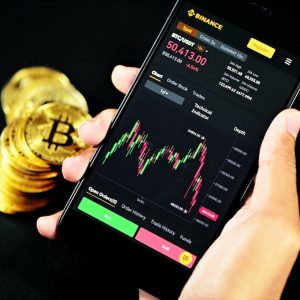Introduction
The foreign exchange market, commonly referred to as forex or FX, is the global marketplace for the trading of currencies. It is the largest and most liquid financial market in the world, with trillions of dollars changing hands every day. The forex market is decentralized and over-the-counter (OTC), meaning that there is no central exchange where trades are executed. Instead, trades are conducted electronically between banks, brokerages, institutional investors, and individual traders.
Understanding the Basics of Foreign Exchange
Currency Pairs
In the forex market, currencies are traded in pairs. The first currency in the pair is the base currency, and the second currency is the quote currency. For example, the EUR/USD currency pair represents the exchange rate of the euro (EUR) to the US dollar (USD). When you see a quote of 1.20 EUR/USD, it means that one euro is worth 1.20 US dollars.
Exchange Rates
The exchange rate is the price of one currency in terms of another currency. Exchange rates fluctuate constantly in response to supply and demand, just like any other market. A number of factors can influence exchange rates, including interest rates, economic data, political events, and global market sentiment.
Pip and Point
A pip is the smallest unit of change in an exchange rate. It is the fourth decimal place for most currency pairs, and the second decimal place for the Japanese yen (JPY). A point is a measure of change in an exchange rate, equal to 100 pips.
Types of Forex Trading
There are two main types of forex trading: spot trading and forward trading.
-
Spot trading is the most common type of forex trading. In spot trading, the exchange of currencies takes place immediately, typically within two business days.
-
Forward trading is a type of forex trading where the exchange of currencies is agreed upon today, but takes place at a future date. Forward contracts are used to hedge against currency fluctuations.
Participants in the Forex Market
The forex market is a global marketplace with a wide range of participants, including:
-
Banks: Banks are the largest participants in the forex market. They buy and sell currencies for their own accounts and on behalf of their clients.
-
Commercial companies: Commercial companies use the forex market to convert currencies when they do business internationally.
-
Institutional investors: Institutional investors, such as hedge funds and pension funds, use the forex market to speculate on currency movements.
-
Retail traders: Retail traders are individual investors who trade currencies in the forex market.
Benefits of Forex Trading
There are a number of potential benefits to forex trading, including:
-
High liquidity: The forex market is the most liquid financial market in the world, which means that it is easy to enter and exit positions.
-
24/5 trading: The forex market is open 24 hours a day, five days a week, which allows traders to take advantage of trading opportunities around the clock.
-
Potential for high returns: Forex trading has the potential to generate high returns, but it is also a high-risk activity.
Risks of Forex Trading
Forex trading is a high-risk activity, and there is a potential to lose money as well as make money. Some of the risks of forex trading include:
-
Market volatility: Exchange rates can fluctuate significantly in a short period of time, which can lead to losses if you are not careful.
-
Leverage: Forex traders can use leverage to magnify their profits, but this can also magnify their losses.
-
Counterparty risk: The risk that the other party to a forex trade will not fulfill their obligations.
How to Get Started with Forex Trading
If you are interested in forex trading, there are a few things you need to do to get started:
-
Educate yourself: There are a lot of resources available to help you learn about forex trading. Read books, articles, and websites. Take online courses. And practice trading in a demo account before you risk your own money.
-
Choose a broker: There are many forex brokers to choose from. Do your research and select a broker that is regulated and has a good reputation.
-
Open a trading account: Once you have chosen a broker, you will need to open a trading account. This will involve providing your personal information and making a deposit.
-
Start trading: Once you have funded your trading account, you can start trading currencies. Begin with small amounts of money until you are comfortable with the platform and the risks involved.
Conclusion
The foreign exchange market is a complex and dynamic market that can be both rewarding and challenging. If you are interested in forex trading, it is important to educate yourself about the risks and potential rewards before you

